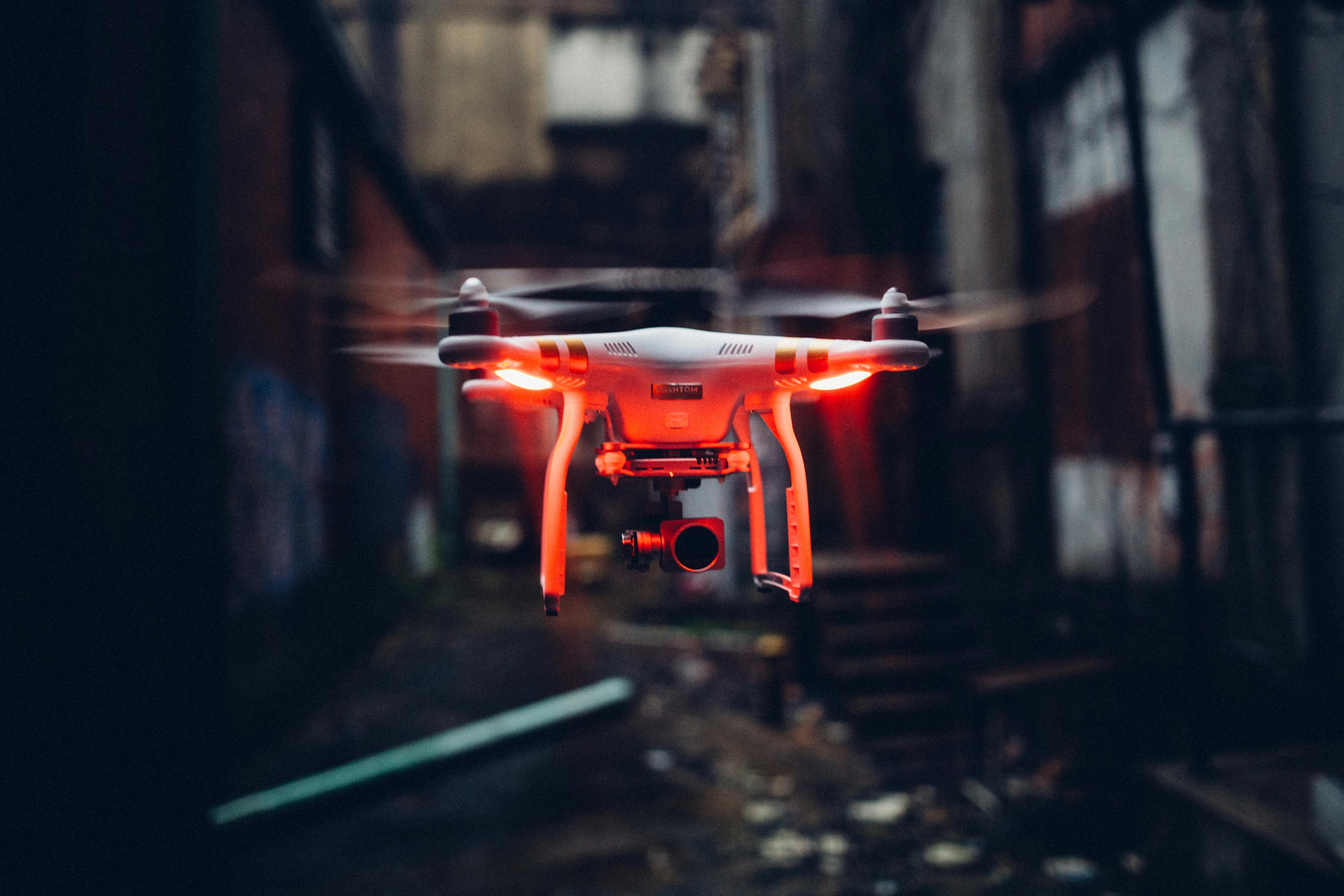Introduction
The evolution of technology has drastically transformed various industries, making everyday life simpler and more efficient. Innovations are now integral to healthcare, education, automotive, engineering, paramedics, agriculture, entertainment, energy production, e-commerce, climatology, and ecological supervision. One such groundbreaking innovation is the drone, an automated airborne vehicle typically operated by a ground controller. This blog explores the diverse applications of drones and their optimal use in India.
Sectors and Applications for Drone Usage
- Agriculture: Drones are revolutionising agriculture by enabling farmers to monitor crops, spray pesticides, and assess soil health with real-time data, leading to informed decision-making and improved yields.
- Infrastructure: In the infrastructure sector, drones are utilised for surveying, mapping, and monitoring construction sites, enhancing project progress assessment and overall efficiency and safety.
- Media and Entertainment: Drones are increasingly employed in the media and entertainment industry for aerial photography and videography, offering captivating aerial perspectives for films, advertisements, and events.
- Disaster Management: Drones play a vital role in disaster management by providing aerial surveys of affected areas, delivering essential supplies, and aiding in search and rescue operations.
- E-commerce and Logistics: E-commerce companies are exploring drone use for last-mile delivery, particularly in remote areas, which can potentially reduce delivery times and costs.
Drone Operation Eligibility
Eligibility guidelines to operate a drone legally are given under Drone Rules 2021:
- Be at least 18 years old and not more than 65 years of age.
- Has passed class 10th examination or its equivalent from a recognised Board.
- Complete training and obtain certification.
- Register the drone with the aviation authority.
- Comply with all relevant laws and regulations.
- Insurance coverage for the drone.
Drone Operation Zones in India
Green Zone:
- Airspace up to 400 feet (120 meters) above land or territorial waters and up to 200 feet (60 meters) above areas 8-12 kilometers from an airport perimeter.
- Drones can operate freely.
Yellow Zone:
- Restricted airspace requiring permission from air traffic control, including areas above 400 feet in green zones and above 200 feet in areas 8-12 kilometres from an airport perimeter.
- Authorisation needed from air traffic control.
Red Zone:
- Highly restricted airspace above specific areas or installations designated by the Central Government.
- Operations require explicit Central Government permission.
Guidelines for Responsible and Safe Drone Operation
Countries are investing in drones but also see the need for rules to keep everyone safe. The U.S. started this, and India followed with its regulations. India’s rules, introduced in 2018, help prevent security risks by requiring drone users to get special IDs and permits. The International Civil Aviation Organisation (ICAO) enacted Drone rules in 2021.
Basic Drone Rules & Restriction:
- Avoid crowded or highly populated areas.
- Respect privacy.
- Unmanned Aerial Vehicles (UAVs) are prohibited within 5 km of airports.
- Operate drones only during the day and in good weather.
- No drones near government or military buildings.
- Operators must be 18+ and trained.
- Drones must display a license tag with the operator's information and a contact number.
- Maintain a visual line of sight when operating drones.
- Only one drone can be flown by an individual at a time.
- Drone flights are prohibited within 50 kilometres of the national border and beyond 500 meters offshore.
- No drones within 5 km of Vijay Chowk, Delhi, or over conservation areas.
- Each drone must have third-party insurance coverage.
- Drones weighing more than 250 grams must follow basic regulations.
- The Digital Sky Platform enforces "No Permission, No Take-off" (NPNT) to manage drone routes.
- RPAS (Remotely Piloted Aircraft System) is the DGCA (Directorate General of Civil Aviation) term for drones.
Digital Sky Platform
The rules introduce the Digital Sky Platform, an online portal for drone registration and permissions. This platform makes it easier for drone operators to register their drones, themselves as pilots, and their service providers. Before flying, operators must get permission through this system, following the rule of "No Permission, No Takeoff" (NPNT).
Certification and Training
The rules specify training and certification requirements for drone pilots. They need to complete training from authorised organisations and pass tests to get certified. This ensures that only trained individuals operate drones, reducing the risk of accidents and making operations safer.
Validity of License
A remote pilot license shall be considered valid only when enlisted on the digital sky platform. It remains valid for 10 years unless suspended or cancelled. The license can be renewed by the Director General for a period specified therein, up to a maximum of 10 years, upon payment of the specified fee. The license holder must undergo refresher courses specified by the Director General on the digital sky platform as required.
Privacy protection
The Drone Rules 2021 in India protect privacy by prohibiting drone flights over private properties and sensitive areas without consent. Operators must comply with data protection laws for storing and using collected data. No-fly zones over government and military sites prevent unauthorised surveillance. Drones must be registered, and operators need permission for each flight, to ensure compliance with privacy regulations. Violations can lead to fines and suspension of permits, enforcing respect for individuals' privacy rights.
Conclusion
Drones are revolutionising sectors in India, offering efficiency and innovation. The Drone Rules 2021 ensure safety, privacy, and responsible use by defining eligibility, operation zones, and guidelines. The Digital Sky Platform streamlines registration and permissions, crucial for maximising benefits and minimising risks in India's drone technology adoption.
References
- Shravit Arora, Navigating the Skies: Understanding Drone Regulations in India, 5 INDIAN J.L. & LEGAL RSCH. 1 (2023).
- Commercial Drone Operation Training and Certification Requirements: Australia, Brazil, Canada, European Union, India, Israel, Japan (2022)
- Drone Rules 2021
- Commercial Usage of Drones: Overview in the Indian context By Rebin Koshy Abraham, https://school.takshashila.org.in/
